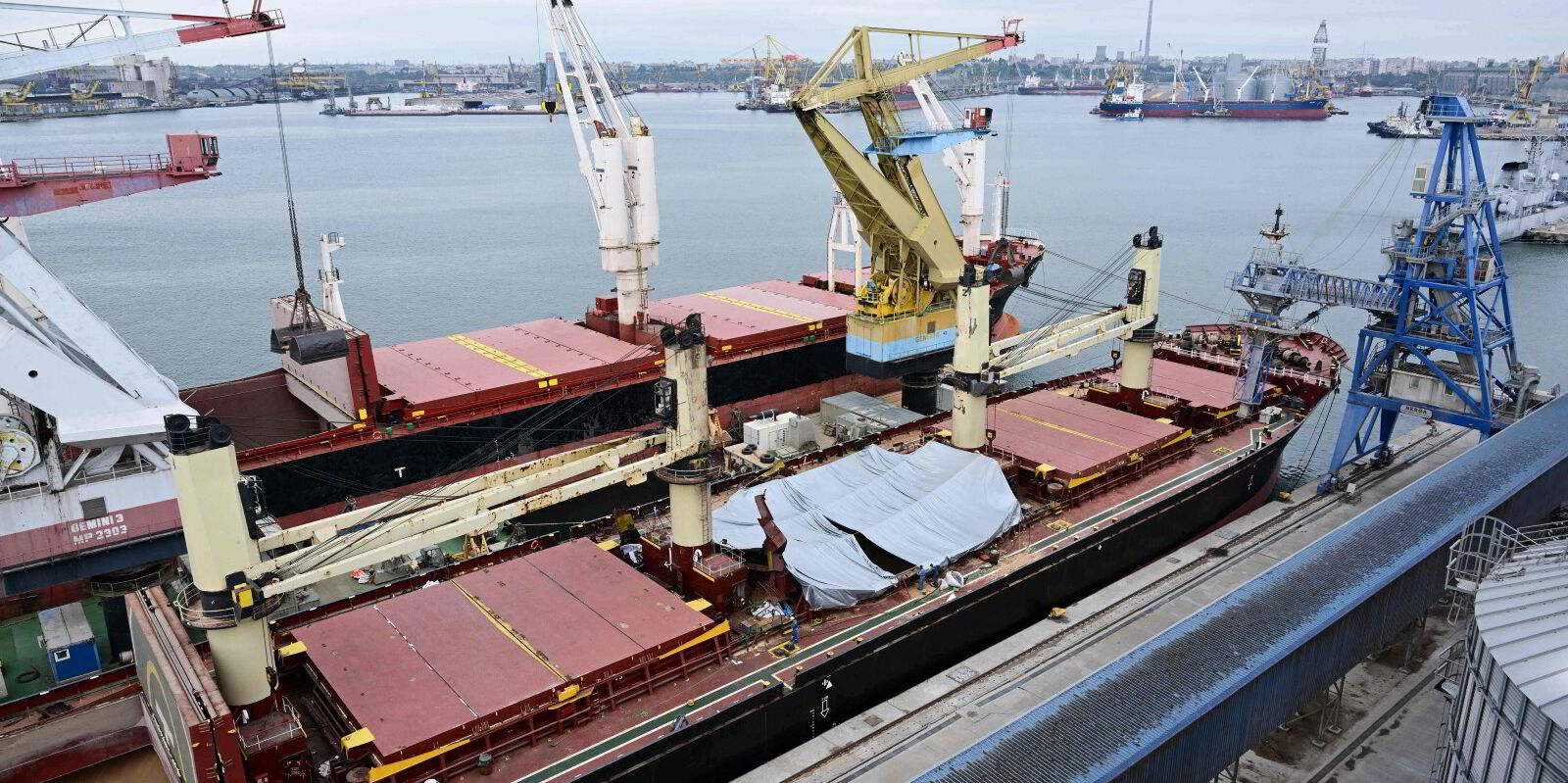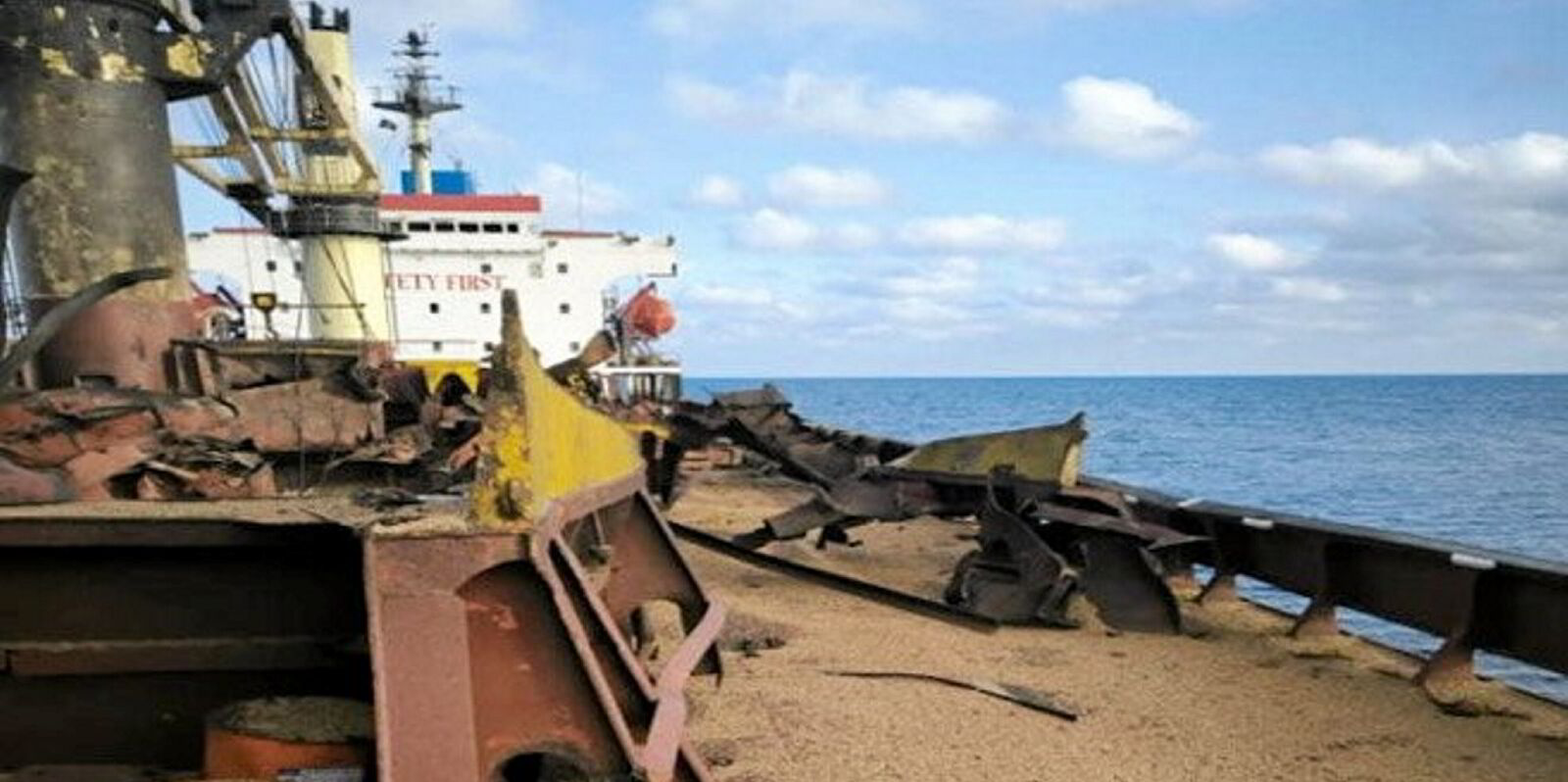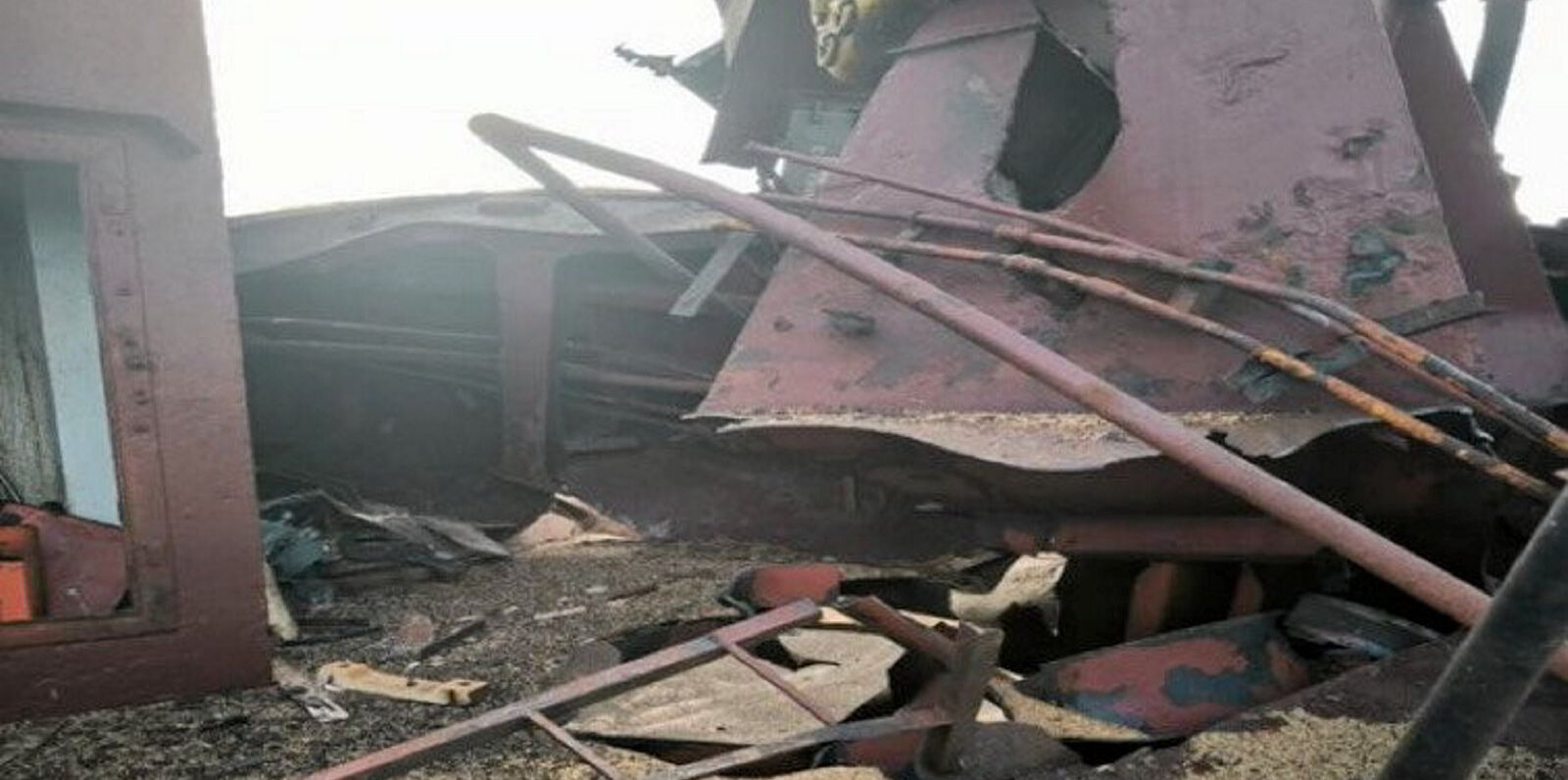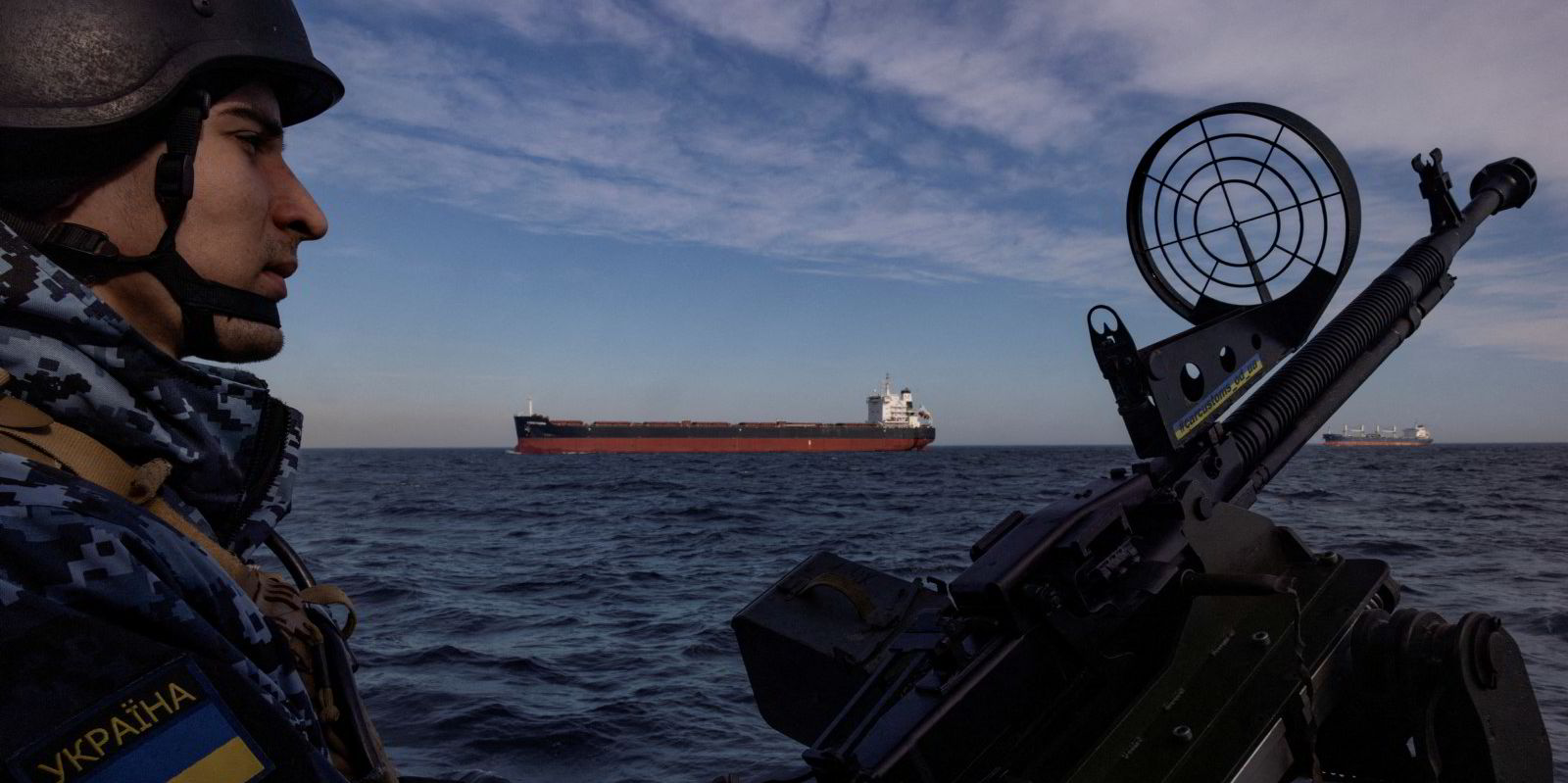A missile attack on a Ukraine grain ship in the Black Sea last month was probably the result of poor, hasty targeting by a panicked Russian pilot using unreliable munitions, the UK says.
In its daily Ukraine war briefing issued on Thursday, the Ministry of Defence (MoD) revisited the case of the 27,300-dwt Aya (built 1997), which was hit on 11 September just outside Ukrainian waters.
Ukrainian authorities immediately named Russia as the culprit. The Kremlin claimed ignorance of the incident, which damaged the Egypt-bound grain ship without harming any of its 23 Syrian seafarers.
The Aya, which was briefly immobilised off Romania after the hit, is currently safely in Istanbul.
The MoD account is the first to offer an explanation for the rare incident.
“It is unlikely that the MV Aya was the intended target for this mission and was likely struck due to poor targeting procedures from Russian pilots using an ageing munition,” its briefing said.
“It is a realistic possibility this incident occurred due to pilots incorrectly identifying MV Aya as their target in haste, wanting to depart the area immediately after launch for fear of being targeted by a Ukrainian surface-to-air missile.”
One reason for the Russian pilots’ haste to leave might have been that another of the Tu-22M3 Backfire aircraft they were flying was shot down by Ukrainian air defence earlier this year.
According to the MoD, this “extremely poor and irresponsible aviation practice” was compounded by the use of the AS-4 Kitchen missile, which they described as “ageing munition” that has “consistently underperformed” in the Ukraine war.
Rare incidents
AS-4 Kitchen is the Nato designation for the Kh-22, which Ukrainian authorities had identified from the beginning as the type of missile that hit the Aya.
The incident had caused concern about Moscow possibly starting a campaign to directly attack grain ships out of Ukraine, the traffic of which has been going on surprisingly smoothly since the country managed to establish a maritime corridor in August last year.
More than 2,000 voyages have been recorded out of the ports of Odesa, Yuzhny/Pivdennyi and Chornomorsk since.
During this entire period, Russia has been regularly attacking Ukrainian port infrastructure in the three terminals, plus other Ukrainian terminals by the Danube.
However, only two vessels were hit in the corridor as a direct or indirect result of Russian strikes.
Moscow assumed responsibility for one of these incidents, on 20 September, claiming that the unidentified cargo ship it targeted in Odesa was carrying arms.
Ukraine used the same argument last year, when it attacked a Russian product tanker it said was carrying fuel for Moscow’s invading army.
Other rare ship casualties have been caused by mines floated by Russia or Ukraine in the Black Sea, or as a result of land battles in which Russian rocket-propelled grenades hit stranded and abandoned vessels in the blocked Ukrainian port of Kherson.
Ukraine has blown up a grounded Russian product tanker near Kherson, claiming Russian forces used the hull as a command post.






